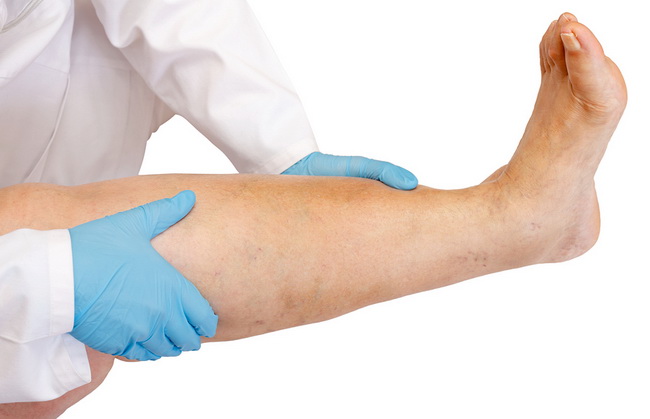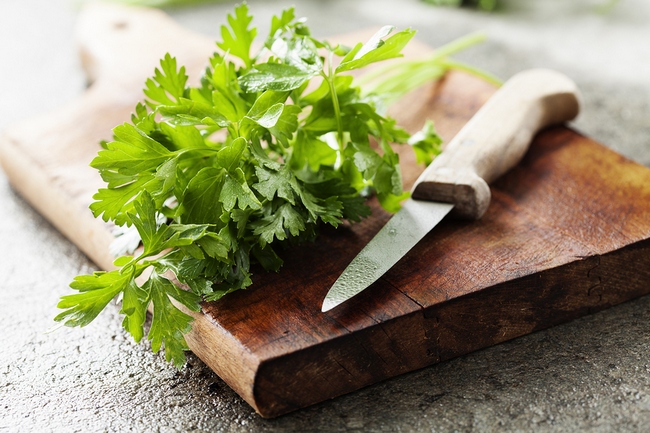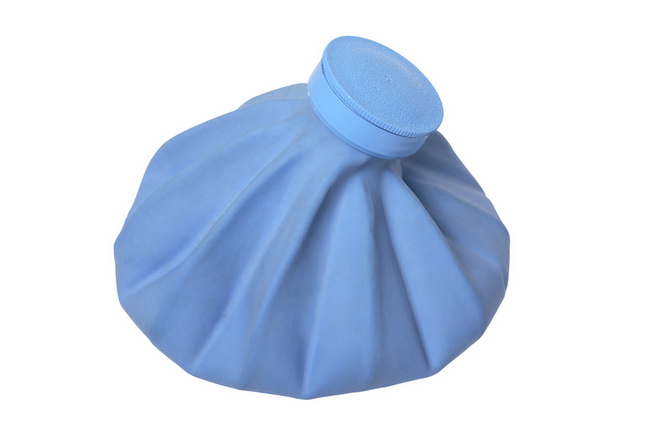- Make It Yourself Lavender Heart-Shaped Bath Bombs!
- 20 Things You Never Knew About “Down There”
- 12 Best Foods For Those Suffering From Arthritis Pain
- 12 Personal Hygiene Mistakes Almost Everyone Makes (Mom Never Told You About #4!)
- 15 Medicinal Plants And Herbs From The Cherokee People
- 12 Mind-Blowing Benefits Of Drinking Coconut Water During Pregnancy
- 12 Outstanding Winter Foods That Won’t Fatten You Up Like A Christmas Turkey
12 Natural Ways to Stop Edema Fast! (# 6 is So Good for You!)

Photo credit: bigstock.com
Edema is an accumulation of fluid in the body’s tissue, which leads to swelling. This can occur in any part of the body, but for most people, edema affects the feet, ankles, legs, hands or arms. It has been estimated that nearly five million people in the US suffer from edema at one time or another.
If you or someone you know has experienced edema, or currently has this problem, then you know the painful pressure that edema can cause. Sometimes edema occurs from something as simple as sitting in one position for long time, such as an extended airplane trip or car ride. Other times, edema is the result of certain medications, medical conditions (such as pregnancy) or even serious health problems. These include kidney disease, liver failure, heart failure, cancer, deep vein thrombosis or an allergic reaction.
Edema sometimes occurs after surgery, although the reasons for this are not fully understood. Certain other factors can increase your risk of developing this painful swelling, including high blood pressure, excessive alcohol consumption, kidney disease and a sedentary lifestyle.
Although edema itself is not harmful, it is sometimes a sign of an underlying problem. If you have unexplained edema that does not go away within a few weeks, you should consult a doctor to determine the cause.
Otherwise, for those who spend long hours sitting, travel frequently by plane, are pregnant or have medication that is causing this swelling, we have 12 of the best ways to relieve the pressure and reduce swelling naturally, without harmful chemical diuretics.
Keep reading. You might be surprised at just how easy it can be to keep your edema under control and feel much more like yourself.
1. Apple Cider Vinegar
This is a very well-known remedy for edema. Due to its high levels of potassium, this natural drink removes excess salt from the body, reducing fluid retention. Apple cider vinegar also contains anti-inflammatory compounds, which reduce pain, redness and swelling. Get the most out of this natural substance by using it both topically and taking it internally.
Add one or two teaspoons of raw, unfiltered apple cider to a large glass of water and drink twice daily. If the taste does not appeal to you, try adding a tablespoon of raw, organic honey to each glass.
You can use apple cider vinegar externally also by mixing equal parts of apple cider vinegar and warm water. Soak a clean washrag or towel in this mixture, and apply it to the affected area for 10 or 15 minutes. Repeat two or three times daily until the swelling has gone down.
2. Cucumber Juice
This is a tasty method that works for many people. Cucumber juice removes toxins and excess fluids while it aids greatly in healing. If your skin has become tight and drawn, or if it has even cracked or split open with the pressure, this might be the answer for you. Cucumber is very soothing to the skin. Drink one glass (eight ounces) of freshly squeezed, organic cucumber juice once or twice each day until the swelling subsides.
3. Epsom Salt Soak
Epsom salt, which is actually made of magnesium flakes and is not a true salt, can reduce swelling, inflammation and draws out excess fluid from the body. It is also relaxing and will help you sleep better at night. Mix two cups of Epsom salt in a tub of warm water. Soak for a minimum of 20 minutes and a maximum of 40 minutes. Repeat three to four times each week.
Continue to Page 2

Photo credit: bigstock.com
4. Coltsfoot and Comfrey Compress
This is an old-fashioned home remedy for edema that is pretty effective. To use this method, boil four cups of water and add two teaspoons each of coltsfoot and comfrey. Boil for five minutes, and then cool until the mixture is very warm, but not hot. Strain out the herbs, then soak a towel or rag in the solution. Apply the cloth to the affected area and leave it on for 10 minutes or until the rag is cold. Repeat this method two or three times daily until you get results.
5. Tea Tree Oil
If your edema is from insect bites or stings, this oil’s natural anti-inflammatory and analgesic compounds can reduce the pain and swelling. One study, published in the official journal of the European Histamine Research Society in 2002, showed that the compounds in tea tree oil, terpinene-4 and alpha-terpineol, can regulate the symptoms of edema.
Put a few drops of tea tree oil on a cotton ball and hold it on the affected area for about five minutes. Then rinse off with warm water. Repeat as necessary. For very mild cases of edema, you can add a few drops of tea tree oil to any carrier oil (such as olive oil or almond oil) and massage the affected area twice daily until the swelling and pain are gone.
6. Try a Juice Fast
Not only is a juice fast super healthy, if you suffer from severe or chronic edema, and you feel as if you have tried everything, this should work for you. Going on a strict juice-only fast for seven days to 10 days is well-known for relieving the body of excess fluids. You must consult with your doctor before trying this, especially if you are taking any medications or if you are under care for any type of medical condition. A juice fast will remove excess fluid, ease inflammation and remove toxins from the body. Read more about kidney detox juice recipes.
Continue to Page 3

Photo credit: bigstock.com
7. Parsley
This little plate dressing is very helpful when it comes to removing excess fluid from the body. The Journal of Ethnopharmacology found that parsley has powerful diuretic effects, as it blocks the re-absorption of both potassium and sodium.
Make your own parsley tea by adding one teaspoon of dried parsley to two cups of water. Boil for 10 minutes, strain, and then drink when it has sufficiently cooled. Do this on an empty stomach every morning for best results.
8. Dandelion
This is another excellent diuretic straight from Mother Nature. This weed is full of potassium, which removes excess salts from the body, reducing fluid retention and swelling.
Note that if you have gallbladder problems, you should avoid dandelion. Otherwise, make your own dandelion tea by mixing one teaspoon of fresh or dried dandelion leaves in one cup of boiling water. Cover the cup and steep for seven to 10 minutes. Strain and drink two or three cups of this tea each day until your edema has subsided.
9. Flaxseeds
Flaxseeds have been used in Ayurvedic medicine for hundreds, perhaps even thousands, of years for the relief of edema. Flaxseeds have powerful anti-inflammatory compounds that help your body remove excess fluid naturally. Flaxseeds are also great at allowing the body to detox itself. Add half a teaspoon of ground flaxseeds to a glass of water and drink twice each day.
Continue to Page 4

Photo credit: bigstock.com
10. Coriander Seeds
Like flaxseeds, coriander seeds (sometimes called cilantro seeds) are highly anti-inflammatory and encourage good blood circulation. Coriander seeds reduce the pain and swelling by removing excess fluid from the body.
Mix three tablespoons of coriander seeds in one cup of boiling water. Continue to boil until the water is reduced by half. Strain out the seeds, and then drink this tea when it is cool. Drink two cups of this tea daily for best results.
11. Cold Pack
If you have edema due to an injury, such as a sprain or fracture, a simple ice pack will help reduce the swelling in many cases. Use a bag of frozen veggies or place some crushed ice in a plastic bag, and wrap in a clean towel. Apply to the affected area for 10 minutes, then remove for 10 minutes. Repeat until the swelling has subsided. Never place an ice pack directly on the skin, as you can give yourself frostbite!
SEE ALSO: 18 Home Remedies for Varicose Veins
12. Mustard Oil
Warm mustard oil is an old-fashioned but effective method of relieving the swelling of edema. It has natural analgesic compounds that will help stop the pain and should relieve the swelling and inflammation. Don’t use the type of mustard that you put on your hot dog or hamburger — that is prepared mustard. What you want to use is mustard oil. Warm a bit of mustard oil on the stove or in the microwave, and apply to the affected area. Rub it in gently for about five minutes, and then allow it to sit for another five minutes before rinsing it off. Repeat this twice a day until the swelling subsides.
Extra Tips:
- Stop smoking until your edema has subsided.
- Don’t drink alcohol until the edema has subsided.
- Try compression stockings at night to prevent fluid buildup.
- Take vitamin B6 supplements (50 mg) twice each day
- Eat plenty of high potassium foods such as bananas, raisins, white beans and tomatoes to remove excess salt from the body.
References:
































